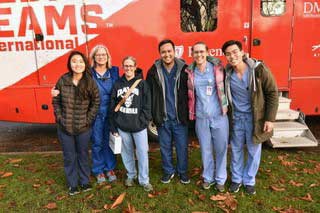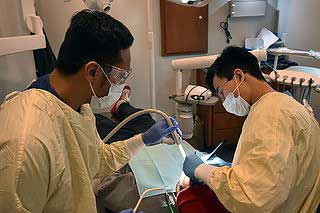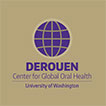I am a current 2nd year dental student pursuing a career in oral and maxillofacial surgery. What that means is that after my four years of training in dentistry, an additional 6 years in an oral and maxillofacial surgery program will grant me the skills, privilege, and the medical degree to perform surgeries in the head and neck region (of course, additional fellowships may be necessary) – Whew! But I don’t wish to end my training there.

In the devastating 2010 earthquake in Haiti, 300,000 thousand people lost their lives and much more were injured to the relentless destruction caused by the forces of Nature. Numerous physicians, nurses, and surgeons from around the world swarmed in to aid in this crisis, with oral and maxillofacial surgeons being one of the earliest responders. Since oral and maxillofacial surgeons are specialized to treat diseases, injuries, and congenital defects of hard and soft tissues of the head and neck region, they were essential in treating the bone fractures, facial lacerations, traumatic burns, and reconstructive procedures during the earthquake’s aftermath. It’s been almost a decade since the last major earthquake in Haiti, and not much has changed with Haiti’s dependence on foreign trained surgeons to provide advanced and often complicated surgical procedures—patients are even often flown to the United States for surgeries requiring more complex equipment. Humanitarian relief efforts are still needed in developing countries, but this also reveals the crippling truth that within the borders of many developing countries, lives are lost to preventable and treatable conditions due to the shortage of doctors.

I’ve noticed that this is one of many frustrating challenges in global health: the lack of specialized surgeons and surgical equipment within the developing world. Ever since being introduced to global health by Dr. Stephen Gloyd, I’ve wondered about how I can take my (future) skills in surgery and put it to use in global health. Surgery (Global Health, University of Washington) , being an intense and fine art, requires thousands of hours of clinical experience and coaching to perfect. Global health on the other hand deals with systems-based problems that affects the population as a whole. The traditional method would be to take my specialized skills to treat the patients in need, one-by-one. However, since the UW DeRouen Center for Global Oral Health promotes sustainability, collaboration, innovation, advancement, and compassion, I’ve been encouraged to think more about training local doctors and supplementing existing trauma centers. I want to use my career to develop sustainable options for those in developing countries, and improve the access to healthcare. After all, how else can I answer the question: Why can I be saved in your country but not mine?
It will be an exciting journey, and I am looking forward to learning from the many innovative collaborators I will meet through the DeRouen Center.
You can reach Marcus at: hwajihoo@uw.edu.
